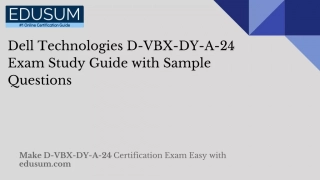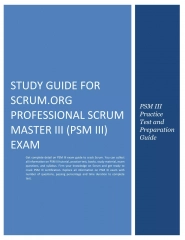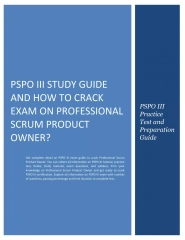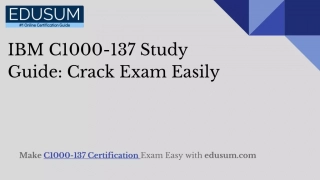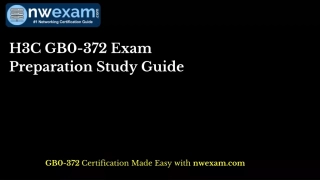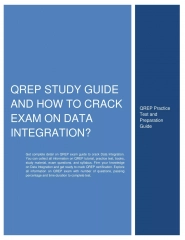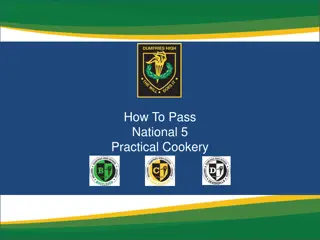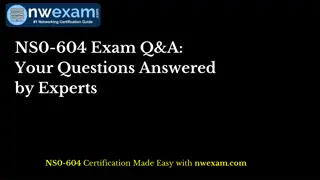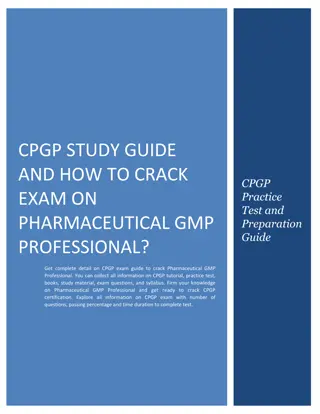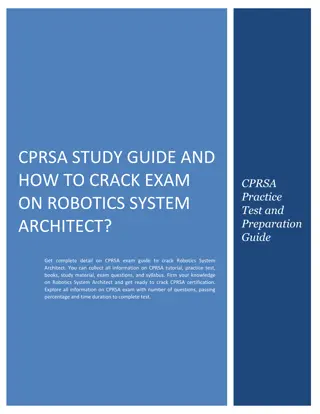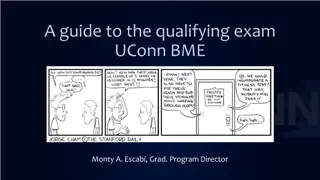Study Guide for Latin 2 National Latin Exam
Learn about Latin nouns and their cases, including nominative, genitive, dative, accusative, ablative, and vocative. Explore personal, relative, interrogative, and reflexive pronouns in Latin grammar.
Download Presentation

Please find below an Image/Link to download the presentation.
The content on the website is provided AS IS for your information and personal use only. It may not be sold, licensed, or shared on other websites without obtaining consent from the author.If you encounter any issues during the download, it is possible that the publisher has removed the file from their server.
You are allowed to download the files provided on this website for personal or commercial use, subject to the condition that they are used lawfully. All files are the property of their respective owners.
The content on the website is provided AS IS for your information and personal use only. It may not be sold, licensed, or shared on other websites without obtaining consent from the author.
E N D
Presentation Transcript
I. Nouns: 1st 2ndM 2ndN 3rd a us/r um ae ae am um ------------------------------------------------------------------------------------- --- ae a s a rum rum rum um um s s s ibus ibus s s a s a s s s ibus ibus 3rdN 4th --- is --- e 4th N 5th s --- is em e us s u um s e e em um s uum ibus s ibus ua uum ibus ua ibus s rum bus s bus
1 Nominative: -subject and predicate nominative 2 Genitive: -possession (of, s, s ); 3 Dative: -indirect object (to/for) verbs of giving, saying, showing, telling, entrusting 4 Accusative: -direct object -duration of time: e.g. sex di s = for six days -extent of space: e.g. 10 feet deep -accusative-infinitive construction (Indirect statement) -object of the following prepositions: ad to, toward, near ante before, in front of circum -aroundin into, onto, against per -through post after, behindcontra -against inter-between, among prope -neartr ns across ob on account of propter because of 5 Ablative: -ablative of means -no Latin preposition= by means of, with, by -ablative of time - no Latin preposition; e.g. in the summer, at dawn -ablative of agent w/passive verbs- use /ab = by -ablative absolute with the noun verbing/having been verbed -object of the following prepositions (SID SPACE) Sub -underSine without In in, on Pr - on behalf of, for D - about, down from Ab/ away from, from Cum- with Ex/ out of, out from 6 Vocative: -direct address used in questions and commands; often punctuated with , ! or ?
-personal: ego, t , n s, v s I/me You Nom ego t Gen me Dat mihi tibi Acc m Abl m We/us You/you n s n strum vestrum n b s n s n b s v s tu v b s v s v b s t t
-relative: qu , quae, quod who, which, whose, whom Nom S qu Gen S cuius Dat S cui Acc S quem Abl S qu --------------------------------------------------------------------------------------- Nom pl qu Gen pl qu rum Dat pl quibus Acc pl qu s Abl pl quibus quae cuius cui quam qu quod cuius cui quod qu quae qu rum quibus qu s quibus quae qu rum quibus qua quibus
-interrogative: quis, quid (uses ? mark) Who? what? Nom S quisquisquid Gen S cuius cuius cuius Dat S cui cui cui Acc Squem quem quid Abl S qu qu qu Nom pl qu quae quae Gen pl qu rum qu rum qu rum Dat plquibusquibusquibus Acc pl qu squ s quae Abl plquibusquibusquibus
-reflexive: me tu nostrum vestrum su - self me tu nostrum vestrum su of self Mihi tibi n b s v b s sibi to/for self m t n s v s s self m t n b s v b s s by/with/from self
-demonstratives: hic, ille, is This/these hic haec hoc huius huius huius Huic huic huic hunc hanc hoc h c h c h c H hae haec h rumh rum h rum h s h s h s h s h s haec h s h s h s That/those ille illius ill illum ill He She It is eius e eum e illa illius ill illam ill illud illius ill illud ill ea eius e eam e id eius e id e ill ill rum ill rum ill rum e rum ill s Ill s ill s ill s ill s ill s illae illa e eae e rum e rum e s e s e s ea ill s illa ill s e s e s e s e s ea e s
Adjectives: Declensions 1st(f) ,2nd (M), 3rd (masc, fem and neuter) 2nd(N)
IRREGULAR ADJECTIVE/ADVERB POSITIVE COMPARATIVE SUPERLATIVE BONUS/BENE MELIOR/MELIUS OPTIMUS/OPTIME MALUS/MALE PELIOR/PELIUS PESSIMUS/PESSIME MAGNUS/MAGNOPERE MAIOR/MAIUS MAXIMUS/MAXIME PARVUS/PAULO MINOR/MINUS MINIMUS/MINIME MULTUS/PAULUM PLUS/PLUS PLURIMUS/PLURIMUM
-noun and adjective agreement = number, gender and case (don t have to match declensions) -interrogative: quot =how many -degrees: positive, comparative, superlative in all 3 declensions positive: (tall) --altus, a, um (1st/2nd Decl) or (brave,strong)-- fortis, e (3rd Decl) comparative: (taller, more tall, rather tall) ----altior, altioris (all comparatives are 3rd declension) (M/F) ----altius, altioris (neuter) superlative: (tallest, very tall, most tall) altissimus, a um; fortissimus, a, um (all in 1st/2nd declension) variant superlatives: words which end in r errimus instead of issimus (celerrimus) words which end in l illimus instead of issimus (facillimus)
Agricola servum _____ laudabat Fortis Fortem Forte Fortibus
Numbers: Cardinal numbers 1-10; unus, duo, tres/tria, quattuor, quinque, sex, septem, octo, novem, decem 100 centum and 1000- mille Roman numerals 1-100: I (1), V(5), X(10), L(50), C(100), D(500), M(1000) Ordinals:1st-10th: primus, secundus, tertius, quartus, quintus, sextus, septimus, octavus, nonus, decimus
Adverbs: degrees: positive, comparative, superlative -positive forms -formation 1st/2nd: replace with = pulchr = beautifully -formation 3rd Decl:add ter or iter to the stem. - comparative: add ius to the base (any declension) e.g. fortius more bravely -superlative: add issim , errim or illim to the base e.g. fortissim = most/very bravely -interrogatives:cur, (why?) ubi (where?) quomodo (how?) quando (when?) -irregulars: bene (well), optim (best) male (badly) pessim (worst)
Conjunctions: aut, (or) et (and) quod (because) sed (but) ubi (when) neque, (and not/neither/nor) et...et, (both and) neque...neque (neither nor) aut aut (either or) postquam; (afterwards) quamquam; (although) nec nec (neither nor)
Enclitic: -ne (indicates a yes/no question do not use with question word like how, when, who, etc) -que (attach on the second of the 2 words/phrases; puer puellaeque (boys and girls) - cum (attach to pronouns-e.g. t cum = with you)
Verbs: Translations: Present: I verb; I do verb; I am verbing Imperfect: I was verbing; I used to verb Future: I shall/will verb Perfect:I have verbed; I verbed; I did verb Pluperfect: I had verbed Future Perfect: I shall/will have verbed
Passive Verbs: Translations: Present, Imperfect, Future, Perfect, Pluperfect , Future Perfect Present: I am verbed; I am being verbed Imperfect: I was being verbed; I used to be verbed; I was verbed Future: I shall/will be verbed Perfect: I have been verbed; I was verbed Pluperfect: I had been verbed Future Perfect: I shall/will have been verbed
Subjunctive Active Present Imp Fut1/2;3/4 Prfct Plu I - -bam -b -am You -s -b s -bis- s s/he -t -bat -bit-et We -mus -b mus -bimus- mus -imus -er mus -erimus You -tis -b tis -bitis tis -istis -er tis -eritis They-nt -bant -bunt-ent Fut Perf - -ist -er s -eris -it -erat -erit -eram -er - runt -erant -erint
Passive present imperfect fut1/2;3/4 perfect pluperfect, -(o)r -bar -bor -ar 4pp+sum 4pp + eram -ris -b ris -beris - ris 4pp + es 4pp + er s -tur -b tur -bitur - tur 4pp+est 4pp+erat -mur -b mur -bimur- mur 4pp+sumus 4pp+ er mus -min -b min -bimin /- min 4pp+estis 4pp+er tis -ntur -bantur -buntur/- ntur 4pp + sunt 4pp + erant
Imperatives -present active imperative singular and plural : = verb! 1st 2nd te te te te -negative imperative with noli, nolite + infinitive = don t verb! 3rd 4th
Infintives -present active infinitive= to verb - re - re -ere - re -present passive infinitive=to be verbed - r - r - - r -perfect active infinitive= to have verbeduse the 3rd principal part + ssee.g. am visse -perfect passive infinitive=to have been verbed use the 4pp + esse e.g. am tus esse -future active =to be about to verbuse the 4pp+ rus + esse e.g. amat rus esse -infinitives in indirect statement (with accusative subject)
-participles: Present-ns, ntis = verbing e.g. amans, monens, veniens (3rd Decl) Perfect4pp + us, a, um = having been verbed amatus, monitus, etc (1st/2nd Decl) Future4pp + rus, a, um = about to verb/going to verb (1st/2nd Decl)
Irregular verb: sum, esse, fu, futrus (to be): PresentImperfect Future Perfect Pluperfect Future Perfect sum eram er fu I am, was, will be, have been, es er s eris fuist You are, were, will be, have been, had been,will have been esterat eritfuitfueratfuerit He, is, was, will be, has been, , had been, will have been sumus er mus erimus fuimus fuer mus fuerimus We are,were, will be,have been,had been,will have been estiser tis eritis fuistis fuer tis fueritis You are, were, will be, have been, had been,will have been sunt erant erunt fu runt fuerant fuerint They are,were,will be, have been , had been,will have been fueram had been, fuer s fuer will have been fueris
Irregular Verb: possum, posse, potu(to be able) I am able/canI was able/couldI will be able I have been able I had been ableI shall have been able possum poterampoter potu potuerampotuer potes poter spoterispotuist potuer s potueris potestpoteratpoterit potuit potuerat potuerit posumus poter muspoterimuspotuimuspotuer mus potuerimus potestispoter tis poteritis potuistispotuer tis potueritis possuntpoterant poterunt potu runtpotuerant potuerint
Irregular Verb: Volo, Velle, Volui, Volutus I want I wanted I will want I have wantedI had wanted I shall have wanted vol vol bamvolamvolu volueram voluer v svol b svol svoluist voluer s volueris vultvol batvolet voluit voluerat voluerit volumus vol b musvol musvoluimusvoluer mus voluerimus vultis vol b tisvol tisvoluistisvoluer tis volueritis volunt vol bant volent volu runt voluerant voluerint
Irregular Verb: Eo, ire, ivi, itus I go I was goingI shall go I have goneI had gone I shall have gone E bam b is b s bis it bat bit imus b mus bimus iimus ier mus itis b tis bitis stis Eunt ibant bunti runt ierant Present Imperatives:(Sing) (go!) (Plural) te (go!) i st iit ieram ier s ierat ier tis
Fero Ferre Tuli Latus I carryI carriedI shall carrt I have carried I had carried I shall have carried fer fer bam feram tul tuleramtuler fers fer b sfer stulist tuler s tuleris fert fer bat feret tulit tulerat tulerit ferimus fer b musfer mus tulimus tuler mus tulerimus fertis fer b tisfer tistulististuler tistuleritis ferunt fer bantferenttul runt tuleranttulerint
PASSIVE: To be carried feror fer bar ferar l tus sum l tus eram l tuser ferris (re) fer b ris (re) fer ris (re)l tusesl tuser sl tus eris fertur fer b turfer turl tus est l tus erat l tus erit ferimur fer b murfer murl tus sumus l tuser musl tus erimus ferimin fer b min fer min l tus estis l tuser tisl tus eritis ferunturfer bantur ferentur l tus sunt l tuserantl tus erunt Present Imperatives:(sing) fer (bear!) (Plural) ferte (bear!) impersonal verbs: licet = it is permitted; placet it is pleasing (usually plus a dative)
II. CIVILIZATION AND CULTURE -Geography: Roman world, e.g., Roma, Italia, Graecia, Britannia, Hispania, Germania, Aegyptus -Bodies of water: Mare Nostrum, Adriatic Sea, Aegean Sea, Black Sea -Rivers: Tiber River; Rhine River, Po River, Nile River, Rubicon River -Important Italian locations, e.g., Ostia, Pompeii, Mt. Vesuvius, Brundisium, Apennine Mts -Provinces, e.g., Africa, Gallia, Asia Minor, -Major cities: Carthage, Troy, Athens -Islands: Sicilia, Creta
Roman world Roma, Italia, Graecia, Britannia, Hispania, Mare Nostrum, Tiber River
Important Italian locations Ostia, Pompeii, Mt. Vesuvius, Brundisium, Apennine Mts
Provinces and major cities, Africa, Athens, Gallia, Carthage, Asia Minor, Troy
History:-Basic historical divisions: Monarchy- 753BC-509 BC kings are highest ruling officials --Kings of Rome: 1. Romulus, 2. Numa Pompilius, 3. Tullus Hostilius, 4. Ancus Martius, 5. Tarquinius Priscus, 6. Servius Tullius, 7. Tarquinius Superbus Republic 509 BC-27BC consuls are highest officials --Early Roman heroes:Horatius, Cincinnatus, Mucius Scaevola --Prominent historical characters: Hannibal; Julius Caesar, Cleopatra, Spartacus -- Major events of Roman history: Punic Wars, Caesar's conquest of Gaul Empire 27 BC -476 emperors are highest ruling officials --Prominent historical characters: Augustus, Marc Antony, Cleopatra
-Mythology: Olympians (Greek/Roman names) symbols, duties; founding of Rome, Romulus and Remus Olympians and associated myths, e.g., Daphne and Apollo, Arachne and Minerva; Major heroes, e.g., Hercules, Aeneas, Jason and Medea, Odysseus, Perseus, Theseus, Daedalus Monsters Medusa, Cyclops, Minotaur, Chimera Trojan war, e.g., Achilles, Hector, Ulysses, Helen The Underworld, e.g., Cerberus, Charon, Prosperina, Styx, Pluto
-Roman life: -city of Rome, e.g., Forum, Circus Maximus, Colosseum; Palatine Hill, Via Appia, Curia -basic housing, e.g., villa, atrium; triclinium, insulae -clothing, e.g., toga, tunica, stola; -Roman household, e.g., pater, mater, servus, filius, filia -meals, e.g., ientaculum, prandium, cena, culina -architectural structures and their functions: e.g., aqueduct, thermae (baths), circus, (chariot racing) amphitheater (gladiatorial battles), curia (senate house), theatrum (theater, stage performances) basilica, (law courts)
-Basic spoken phrases: Salve, salvete hello Quid agis? How are you? / What are you doing? Quid est nomen tibi?What is your name? Vale, valete goodbye Ita vero, Yes! Minime, no! Quid est? What is it?Quis est? Who is it? Gratias tibi ago, Thank you Sol lucet, The sun is shining Quota hora est? What time is it? Adsum,I am present Quid novi? What s new? Quaenam est tempestas? What is the weather? Surge, surgite Rise, get up Ignosce mihi Excuse me. Bene respondisti You responded well
-Derivatives: English words based on Latin roots, prefixes and suffixes e.g., agriculture, aquarium, portable, lunar, octet ; sedentary, sorority, puerile, quadruped, introspection, omniscient, incredulous, benevolent
-Expressions tempus fugit, (time flies) carpe diem Veni vidi vici, Summa cum laude, per annum, caveat emptor, status quo, Ad astra per aspera Nolo contendere Sine die Ab ovo usque ad mala Dum spiro spero Amor omnia vincit Verbum sapienti sat est. Bona fide Ignorantia legis neminem excusat Habeas corpus
-Mottoes E pluribus unum, (one out of many) ad astra per aspera, ars longa, vita brevis -Abbreviations N.B., (nota bene= note well), a.m. i.e., A.D., et al, vs.,


